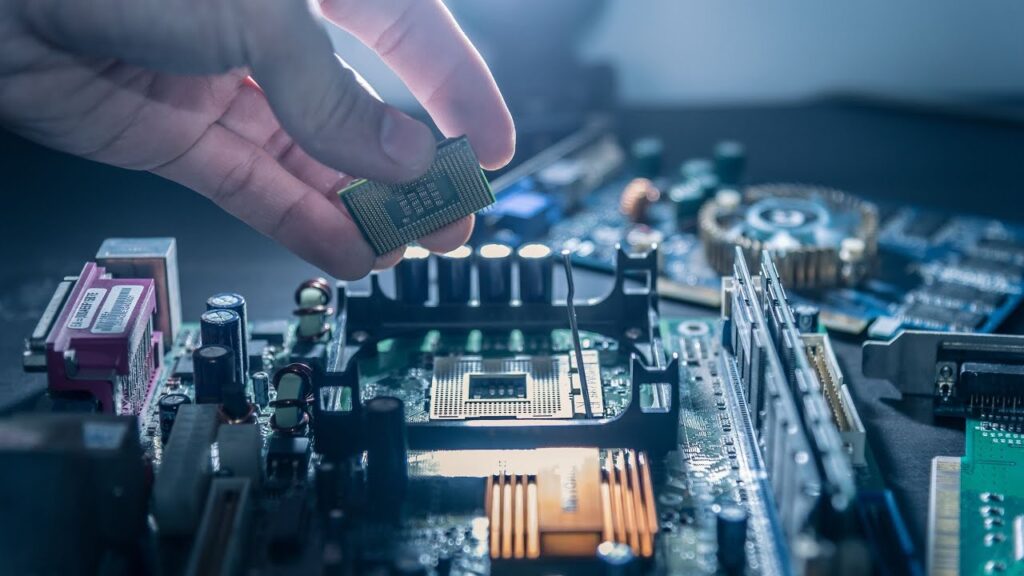What a Hardware Engineering Company Can Do for Your Startup
Launching a hardware-based startup is no small feat. From ideation to prototyping, and eventually to manufacturing and market release, the...

Launching a hardware-based startup is no small feat. From ideation to prototyping, and eventually to manufacturing and market release, the path is complex and often riddled with technical challenges. This is where a hardware engineering company can make a significant difference. By offering technical expertise, design capabilities, and production support, these companies empower startups to turn their concepts into tangible, market-ready products.
Transforming Ideas into Functional Designs
One of the most critical stages in hardware development is transforming a raw idea into a functional design. A hardware engineering company brings experience in various design methodologies, from circuit board layout to mechanical enclosures. They work closely with startup founders to translate conceptual visions into detailed design documents, considering both functionality and manufacturability.
This process includes selecting appropriate components, ensuring power efficiency, and building in scalability for future product iterations. By involving engineering experts early, startups avoid costly design mistakes and accelerate their development timeline.
Rapid Prototyping for Faster Validation
Prototyping is essential for testing and refining your product. A hardware engineering partner can rapidly build prototypes using 3D printing, CNC machining, and quick-turn PCB assembly services. These prototypes serve as proof-of-concept models to test core functionality, user experience, and overall feasibility.
Rapid prototyping also allows startups to gather feedback from stakeholders, investors, and early adopters. This iterative approach helps fine-tune the design before moving into large-scale production, significantly reducing the risk of market failure.
Navigating Complex Technical Challenges
Startups often encounter complex hardware challenges that can stall progress. These may include thermal management, signal integrity issues, EMI/EMC compliance, or even low power optimization. A seasoned hardware engineering firm brings cross-disciplinary expertise to tackle these hurdles head-on.
They can perform simulations, run diagnostics, and implement industry best practices to overcome technical bottlenecks. As a result, startups can maintain momentum and focus on their core mission without being slowed down by technical roadblocks.
End-to-End Product Development Support
Many hardware engineering companies offer end-to-end services that extend beyond design and prototyping. These include embedded software development, firmware integration, and mobile app connectivity—essential for IoT and smart devices.
They also support testing and certification processes, ensuring compliance with regional and global standards such as CE, FCC, or RoHS. For startups aiming to launch internationally, this guidance can be the difference between a smooth rollout and costly delays.
Supply Chain and Manufacturing Strategy
Designing a great product is only half the battle. A reliable manufacturing and supply chain strategy is crucial for scaling. Hardware engineering partners often have established relationships with contract manufacturers and suppliers, helping startups secure quality production without overpaying.
They can also assist with Design for Manufacturing (DFM) practices, which streamline the transition from prototype to production by minimizing complexity and optimizing cost. With expert input on tooling, assembly line setup, and vendor selection, startups can enter production confidently and efficiently.
Reducing Time to Market
In competitive industries, speed is everything. Hardware engineering companies help startups cut down on development cycles by offering streamlined workflows, agile methodologies, and fast access to prototyping and testing tools.
This acceleration allows startups to launch earlier, gather user feedback sooner, and stay ahead of competitors. For founders with limited technical teams, this external support can be a critical advantage in gaining market traction quickly.
Access to a Broader Talent Pool
Building an in-house engineering team takes time, money, and extensive hiring effort—resources most startups don’t have. Partnering with a hardware engineering company gives immediate access to a multidisciplinary team of experts in electrical, mechanical, and software engineering.
This collaboration allows startups to scale their technical capabilities without the overhead of full-time hiring. Additionally, it ensures that high-quality engineering is maintained throughout each development phase.
Strategic Guidance and Long-Term Partnership
Beyond technical work, a good hardware engineering partner offers strategic insights based on industry experience. They help startups make smarter choices about product features, component sourcing, and even market positioning.
This long-term partnership can extend into future product iterations, updates, or entirely new offerings. As your startup grows, having a trusted engineering ally ensures continuity, scalability, and sustained innovation.
Conclusion
For startups venturing into the hardware space, partnering with a hardware engineering company offers clear advantages—from idea validation to final production. With the right expertise and support, you can reduce risk, accelerate development, and build a product that stands out in a crowded market. Whether you’re creating a consumer gadget, an IoT device, or a piece of industrial tech, the right engineering partner can be the catalyst that turns your startup vision into reality.






